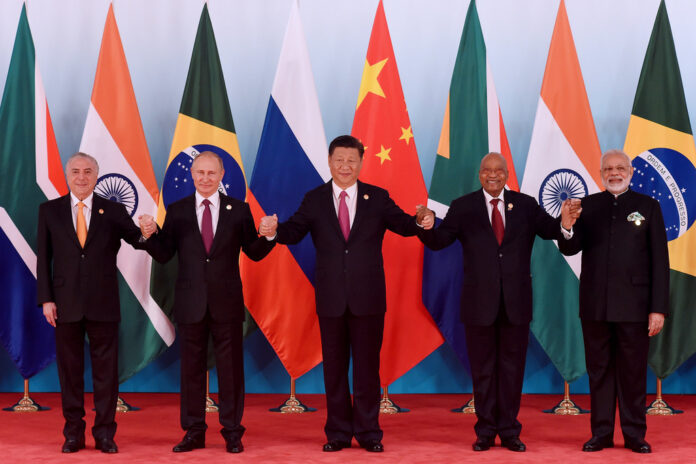By: Seringe ST Touray
The BRICS nations Brazil, Russia, India, China, and South Africa, collectively accounting for nearly a quarter of the global wealth, are convening for their summit from August 22 to 24 in Johannesburg.
An ambitious yet complex objective on the agenda is the potential displacement of the US dollar as a symbol of Western supremacy. This goal will be among the topics discussed during the BRICS summit held from Tuesday, August 22 to Thursday, August 24, in Johannesburg, South Africa.
The attending heads of state, including South African President Cyril Ramaphosa, Chinese President Xi Jinping, Brazilian President Luiz Inacio Lula da Silva, Indian Prime Minister Narendra Modi, and Russian Foreign Minister Sergei Lavrov, will also delve into discussions about broadening their alliance to encompass other nations, with a focus on African countries in particular.
Recent Western sanctions imposed on Russia, such as freezing the central bank’s dollar reserves, excluding Russian banks from the SWIFT international interbank communication network, and prohibiting oil imports from Moscow, have reignited the interest of numerous emerging economies in the concept of “de-dollarization.”
Zongyuan Zoe Liu, the author of a study on this matter for the Council on Foreign Relations, an independent American think-tank, stated, ” Some are primarily seeking to reduce the use of the dollar in their own economies as a shield against international financial turbulence.” Others are keen to escape the extraterritorial reach of US law, which employs the dollar to enforce sanctions and penalties on a global scale.
“How is the US dollar part of trade between Kenya and Djibouti?” inquired Kenyan President William Ruto before the Djibouti parliament on June 14. Similarly, Brazilian President Lula echoed this sentiment on August 3, questioning the necessity for Brazil to depend on the dollar for trade with China or Argentina, and called for the establishment of a shared currency among the BRICS nations.




